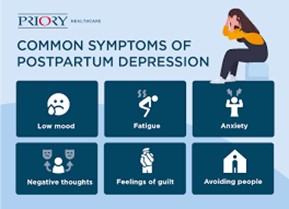A nurse is facilitating a group session for clients who have posttraumatic stress disorder.
Which of the following client statements indicates progression toward positive outcomes?
"I feel guilty that my fellow soldiers died in combat and I survived."
"I keep having flashbacks about when I was attacked by my neighbor."
"I prefer to go through the recovery process independently."
"I think my experience has affected my ability to trust others."
The Correct Answer is B
Choice A rationale:
Expressing feelings of guilt and survivor's guilt is a common aspect of processing traumatic experiences and can be an important step in healing.
Choice B rationale:
Rationale: This statement indicates that the client is acknowledging and discussing the flashbacks related to the traumatic event. Progression toward positive outcomes in posttraumatic stress disorder (PTSD) often involves recognizing and addressing distressing symptoms.
Choice C rationale:
The preference for independence may indicate resistance to seeking support, which can hinder progress in addressing and managing PTSD symptoms.
Choice D rationale:
Recognizing that the traumatic experience has affected the ability to trust others reflects insight into the impact of the trauma on relationships, which is a step toward positive outcomes.
Nursing Test Bank
Naxlex Comprehensive Predictor Exams
Related Questions
Correct Answer is D
Explanation
Choice A rationale:
Hot flashes are not typically associated with postpartum depression; they are more related to hormonal changes.
Choice B rationale:
Intermittent abdominal pain is common after childbirth due to uterine contractions and involution.
Choice C rationale:
Blurred vision is not a typical symptom of postpartum depression.
Choice D rationale:
Feelings of intense guilt are indicative of postpartum depression and require further investigation.

Correct Answer is C
Explanation
Choice A rationale:
Newborns typically lose some weight after birth, but 15 percent loss would be excessive and concerning. A normal weight loss range is about 5 to 10 percent.
Choice B rationale:
Newborns should be fed on demand rather than adhering to strict schedules to ensure they are adequately nourished.
Choice C rationale:
Breastfeeding requires additional energy, and mothers are generally advised to consume around 500 extra calories a day to support milk production and their own energy needs.
Choice D rationale:
Offering a pacifier before sleep can reduce the risk of sudden infant death syndrome (SIDS), but this recommendation usually starts at around 1 to 2 months of age.
Whether you are a student looking to ace your exams or a practicing nurse seeking to enhance your expertise , our nursing education contents will empower you with the confidence and competence to make a difference in the lives of patients and become a respected leader in the healthcare field.
Visit Naxlex, invest in your future and unlock endless possibilities with our unparalleled nursing education contents today
Report Wrong Answer on the Current Question
Do you disagree with the answer? If yes, what is your expected answer? Explain.
Kindly be descriptive with the issue you are facing.
